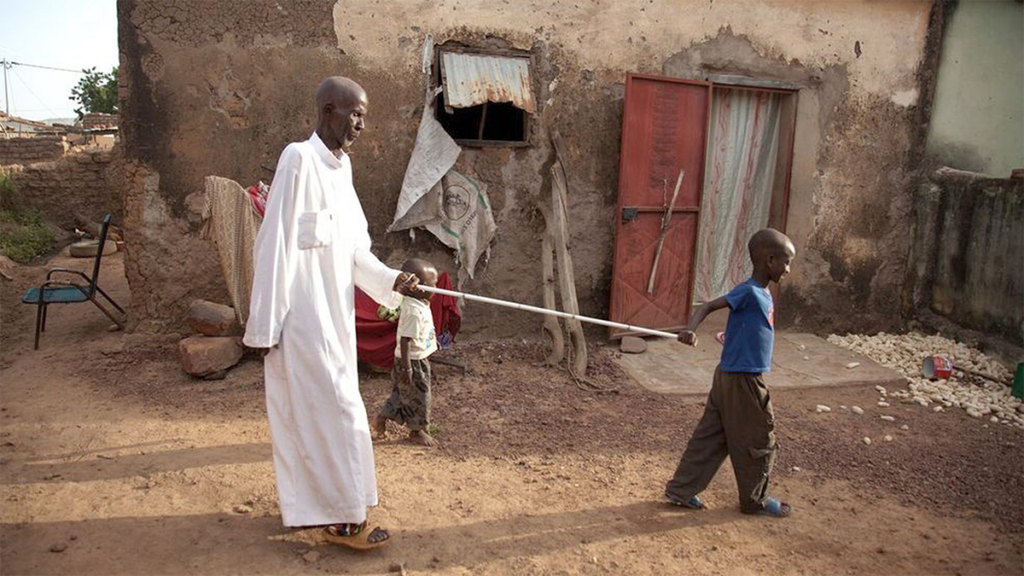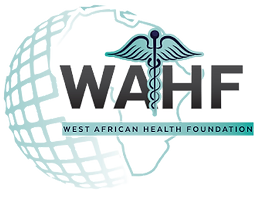Introduction
Vision impairment is a significant health issue that affects millions of people worldwide. In West Africa, and particularly in Ghana, the impact of vision impairment extends beyond health, posing a substantial economic burden on individuals, families, and communities. This blog explores the economic implications of vision impairment in West Africa, with a special focus on Ghana, and underscores the urgent need for increased support and interventions to alleviate this growing concern.

The Current State of Vision Impairment in Ghana
According to the Ghana Health Service, approximately 227,920 Ghanaians are blind, with an additional 340,000 experiencing severe visual impairment. Cataracts, glaucoma, and refractive errors are the leading causes of vision impairment in the country. The prevalence of these conditions is heightened by limited access to eye care services, particularly in rural areas, and a lack of awareness about preventive measures and treatment options.
The Economic Impact of Vision Impairment
- Loss of Productivity: Vision impairment significantly affects productivity. Individuals with vision problems often struggle to maintain employment or participate in income-generating activities. In Ghana, it is estimated that vision impairment costs the economy approximately $400 million annually due to lost productivity and wages.
- Healthcare Costs: The cost of treating vision impairment can be substantial, especially for families living in poverty. Expenses related to medical consultations, surgeries, medications, and assistive devices can quickly become overwhelming, forcing families to make difficult financial decisions.
- Education and Development: Vision impairment in children can severely impact their educational attainment and future opportunities. Without proper vision, children struggle to learn, leading to lower literacy rates and reduced potential for future economic contribution.
- Dependence and Social Support: Individuals with severe vision impairment often rely on family members for daily activities and support. This dependency can strain family resources and reduce the overall economic productivity of households.
The Role of the West African Health Foundation
The West African Health Foundation (WAHF) is tackling vision impairment and its economic implications in Ghana. Through various outreach programs, WAHF provides essential eye care services to underserved communities. These programs include free eye screenings, distribution of corrective eyewear, and surgeries for cataracts and other vision-related conditions.
One of the Foundation’s most significant projects is the construction of an ultra-modern eye institute in Juaben. Currently 70% completed, this facility will serve as a state-of-the-art centre for eye care, providing advanced treatment options and serving as a training hub for eye care professionals in the region.
The Need for Increased Support
To address the economic burden of vision impairment in Ghana, there is a critical need for increased support in several key areas:
- Improved Access to Eye Care Services: Expanding eye care services, particularly in rural and underserved areas, is essential. This includes increasing the number of trained eye care professionals, establishing more eye care centres, and providing affordable treatment options.
- Awareness and Education: Raising awareness about the importance of eye health and the availability of preventive measures and treatments can help reduce the prevalence of vision impairment. Community-based education programs can play a vital role in disseminating this information.
- Screening and Early Intervention: Implementing regular vision screening programs, especially for children and the elderly, can help detect and address vision problems early, preventing further deterioration and reducing long-term costs.
- Supportive Policies and Funding: Governments and international organisations must prioritise eye health in their policies and allocate adequate funding to support eye care initiatives. Collaboration between public and private sectors can also enhance resource mobilisation and service delivery.
How You Can Help
The West African Health Foundation relies heavily on donations and support from individuals, organisations, and the global community to continue their vital work. Your contributions can help complete the Juaben Eye Institute, expand outreach programs, and provide essential eye care services to those in need. Every donation makes a difference in the fight against vision impairment and its economic consequences. https://wahealthfoundation.networkforgood.com/projects/71707-west-african-health-foundation-eye-institute-campaign
Vision impairment is not just a health issue; it is a significant economic burden that affects the overall well-being and development of individuals and communities in Ghana. By increasing support for eye care services, raising awareness, and implementing effective policies, we can alleviate the economic impact of vision impairment and improve the quality of life for thousands of Ghanaians. The West African Health Foundation is committed to leading these efforts and calls on all stakeholders to join us in this vital mission.
#povertycausesblindness #blindnesscausespoverty #VisionForAll #donate #TransformingLives #DonateNow #WAHF #Ghana #JustForThePeople



